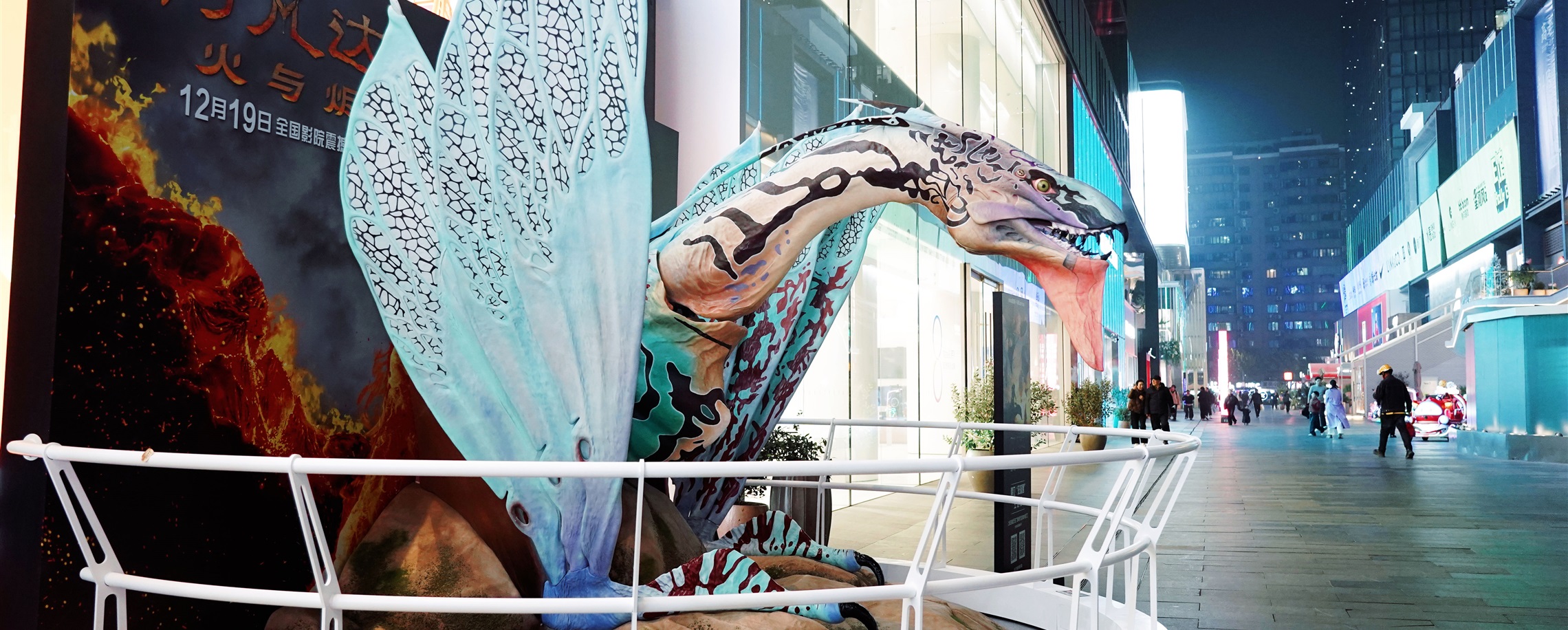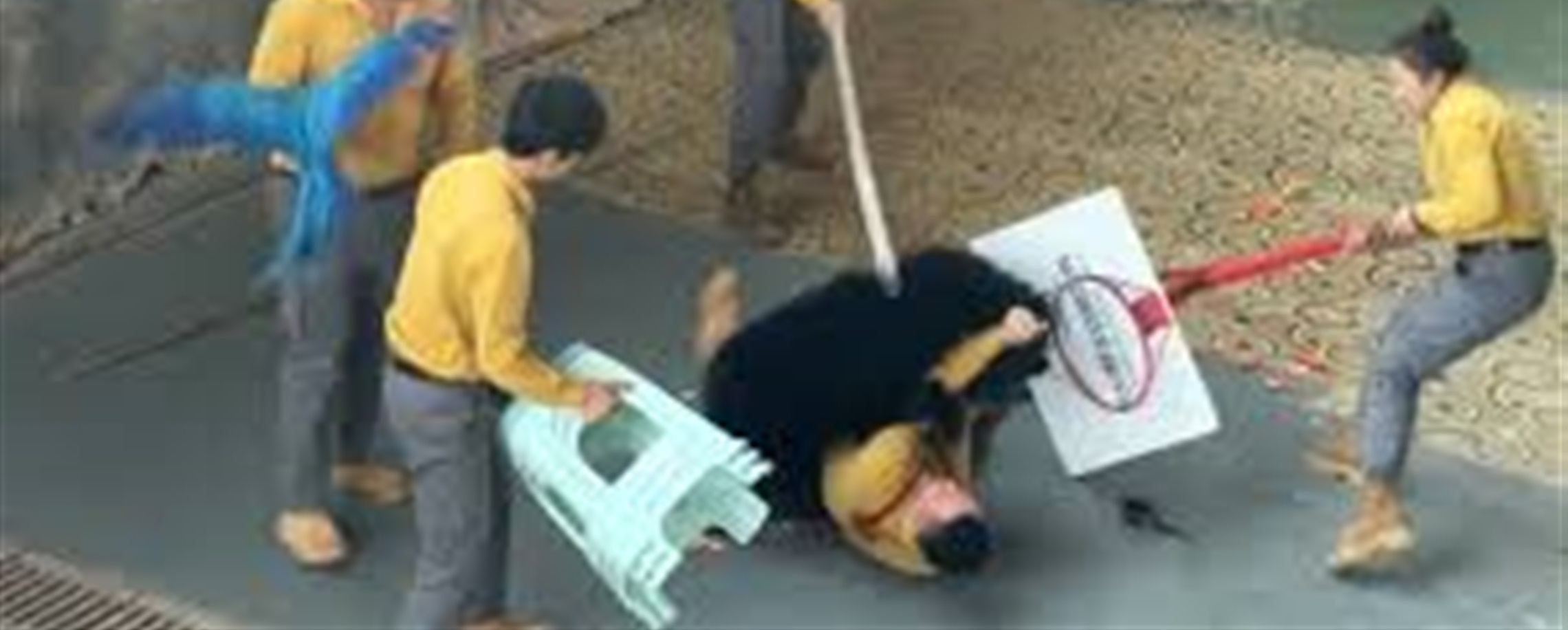[Chef's Table] Michael Wendling of Cuivre
![[Chef's Table] Michael Wendling of Cuivre](https://obj.shine.cn/files/2024/06/20/ddb289e0-1ce6-44ab-b37a-dd2d21d12bff_0.jpg)
If you open a restaurant, count yourself lucky if it lasts even a year. But if you open Cuivre and you're still going strong after nearly a decade and half, that isn't luck. That's talent, focus, hard work and the kind of hospitality that builds a fiercely loyal customer base (serving the best escargots in town certainly doesn't hurt either). We caught up with Cuivre chef/owner and Shanghai veteran Michael Wendling to learn how it all started, why he won't get out of the kitchen, and why he chose a career in cooking instead of cutting hair.
Take us back to the beginning.
So, I've been working since 1994. I stopped school when I was maybe, like, 14? 15? Something like that.
So, you left high school to pursue your career?
I didn't do high school, actually. So, when you're in France you can decide to go to a professional school or to be a trainee for two years. And you work in a restaurant for two weeks and a school for one week – two weeks, one week.
What made you decide to go into trade school rather than high school?
Well, I wasn't good enough to go to high school. So, basically, when you're 14 or 15, they give a few proposals. You can be a mechanic, build houses, be a hairdresser or be a chef. At least that was how it worked where I lived.
![[Chef's Table] Michael Wendling of Cuivre](https://obj.shine.cn/files/2024/06/20/8fdc67b1-85eb-44b2-baf0-732d25b59796_0.jpg)
You didn't want to be a hairdresser?!
Obviously not.
Was your mom happy to see you take this career path?
Yeah. Very happy. She's a great home cook, and I learned to love food because of her.
Do you remember the first dish she taught you how to cook?
I'm not sure which one was the first one, but she used to have some very classic recipes that she did all the time. We even have one of them on our menu, our escargots. It's a signature dish here. If you look at the menu, you'll see her name. We always used to eat that dish every Christmas and New Year.
Is it her recipe or have you adapted it?
Yeah, it's her recipe!
Has she tried it here?
Oh yeah! She recognized it immediately.
![[Chef's Table] Michael Wendling of Cuivre](https://obj.shine.cn/files/2024/06/20/ad7be054-c1dd-4cce-826f-66e3646ff984_0.jpg)
Let's dig into the start of your career then.
I worked in the south of France, Béziers, which is below Montpellier, so middle south of France. For two years I was in Banyuls, which is very close to Spain. Then I started working for a Michelin-starred restaurant after that – Villa Florentine, which had one star back then. After a couple more years I went on to become the sous chef of Georges Blanc, who had three stars. Georges Blanc is the oldest three Michelin-starred in France. And then I went to a restaurant called La Villa de Lys in Cannes. It had one star and that's the place I got two stars.
Because you were there?
I mean, I won't say yes, but that place had one star for, like, 10 years. A year and a half after I arrived, we got the second star. So…
So, why China?
Because when I used to work for Georges Blanc, I used to travel a lot for Singapore Airlines. I used to go to Hong Kong to do his consulting. So I used to move a lot with him. And when I wanted to leave France, like almost 20 years ago now, I wanted to go to Asia.
The first time I came to Shanghai was in 2004 for a holiday. And then I met Paul Pairet. He was at the Shangri-La, and he was like, "Okay, I need a sous chef now. If you can start in three weeks, you work for me." But back then, I was at a two-star restaurant back in France. I had to give at least a three-month notice. But Paul started sending my resume out. I got an offer from Sens & Bund. I knew the Pourcel Brothers, they were really hip back then, but I didn't like the guy running the kitchen there. So, I turned them down. I also got an offer from Le Meridien. It was the right choice. They gave me carte blanche to open a French restaurant, Allure.
![[Chef's Table] Michael Wendling of Cuivre](https://obj.shine.cn/files/2024/06/20/204dfa14-6a8e-4db4-8ec7-a46bc1795150_0.jpg)
![[Chef's Table] Michael Wendling of Cuivre](https://obj.shine.cn/files/2024/06/20/30ee78e7-0fd8-488a-9ed7-5911abf8bd30_0.jpg)
What did you learn working for a big hotel like that?
In a big organization like that, you have to go through the purchasing department. And they don't always understand why you want one particular product over another one. You want this special kind of beef. They find something cheaper, lower quality. They don't see the difference, and it saves the company money. So I had to come up with these workarounds. I knew the suppliers I wanted to work with. If they carried something I wanted, I would have them create a new, completely unique label for it. It would be something odd and completely made up, like… I don't know… "Madagascar beef". Purchasing would shop around for that "Madagascar beef" at a cheaper price, not realizing that "Madagascar beef" isn't a thing. Naturally, they couldn't find it anywhere else. That left them with no choice but to purchase it from the supplier I wanted. In the end, I would get the ingredients I wanted.
How long were you at Allure?
I did five years at Allure. And then I met my current business partner. He wanted to open a French restaurant, and that was how Cuivre was started. The original location he found was way out in Jinqiao on Biyun Rd. I didn't want to go there. I really wanted to open something in the city center, and this place used to be a cafe, so it already had all the fit-outs and everything, so it was perfect.
I brought a lot of my team from Allure with me, too, like Fanny (Cervera, former partner), who ran the front of the house until 2022. I've known her since my days working at Georges Blanc. Our assistant manager, Amy joined us about a month after Cuivre opened. There's Ivy. She's been with us for, like, six, seven years. My current sous chef – he was the first guy I hired at Le Meridien 18 years ago.
![[Chef's Table] Michael Wendling of Cuivre](https://obj.shine.cn/files/2024/06/20/b62b3edc-00ff-4b51-b3d9-88e213d5c6af_0.jpg)
Why do you think people stick around for so long?
We have a very regular customer base, and they all know each other. So, they enjoy that, I think. We operate like a freestanding restaurant. So, we make our own decisions. We do our own thing. And we value people for who they are. And I work alongside them. I'm not just one of these restaurateurs who never comes to his restaurant. I'm here every day. I'm always in the kitchen. I'm always cooking.
![[Chef's Table] Michael Wendling of Cuivre](https://obj.shine.cn/files/2024/06/20/b29360d1-9468-44b2-a3c6-80bdaea5be45_0.jpg)
Let's talk about T for Thai, the Thai restaurant you ran upstairs from Cuivre for a spell. When you first opened that place, it was a nice change because so many of the Thai restaurants here were tailoring their food to please local tastes.
That was the problem for me. Back when we opened that place, if you wanted Thai food, you just had these chain restaurants. They were just mixing powder with coconut cream and boiled chicken. You had a choice of green curry or papaya salad, and it was all the same.
I actually spent one year in Thailand, doing stages in restaurants, so I could learn about the food. But I guess the market was not ready. A lot of the customers didn't understand why we charged more. It was because we imported so many ingredients. But a lot of people thought Thai food was supposed to be cheap, fast. And that's one of the reasons it didn't really work out.
So what was the biggest eye-opener working in a Thai kitchen?
You have to restart from scratch. The first month was super hard. You work with young people who give you orders. Like, after the last order, the boss would tell me to clean the stoves, and I'm like, "Wait..." I was… I don't know maybe 38 maybe back then. Then I had to remind myself, "You're here to learn." And as soon as you get into the right mindset, it's actually fun. And then you become part of the team, and that's amazing.
Every night after I finished work. I would stop at this little pad Thai restaurant. It was super cheap. And at one point the people working there are like, "Why are you always here?" I told them, "Well, I'm learning Thai food." So, for a few weeks, I even worked there after I would get off of work from other restaurant jobs. I would cook with them from midnight to 3am.
![[Chef's Table] Michael Wendling of Cuivre](https://obj.shine.cn/files/2024/06/20/0b54e638-1636-49db-a5f4-b8f8e330d376_0.jpg)
For a time, you were really expanding your footprint…
Yeah. I used to have the burger place next door. Now we just serve burgers here. I used to have a sandwich place in Plaza 66. That was only for one year. It was when they were renovating, so they gave us the place for almost nothing. Then I opened one on the Nike Campus in Yangpu. But it didn't work out the way I wanted it with the partners. I did that for about six months. But at some point when you have like too many places you feel like you are everywhere and nowhere at the same time. You have no time to cook.
You have no time to develop new dishes. I just felt like the quality here was suffering. I tried, but I couldn't make it up.
What restaurants do you think are doing a good job?
I try to eat at my friends' places. I spend a lot of time at Cantina Agave. For Chinese, I love Xibo, and Atina (Kuo, the owner) is a good friend. I love Chez Bulizo by Terada-San. He used to be the chef at Kappo Yu. It's Kaiseiki cuisine like he did there but, it's a bit more modern. I love that guy – really creative, crazy. He's my favorite chef. I love Ochiyo too, Otto e Mezzo, Sage.
What do you cook at home?
If I'm home, I will mainly cook a nice piece of steak and make a salad. Just because I don't want to cook.
Do you ever get tired of cooking?
I love cooking. But I have other passions, like photography and diving. Every month, I leave for three days to do one, the other or both. I get back in the morning, and I go straight to work. Next month I'm even going to Namibia to shoot a documentary.
What kind of documentary?
I can't tell you that…
![[Chef's Table] Michael Wendling of Cuivre](https://obj.shine.cn/files/2024/06/20/6bf3dcab-dbce-4d11-a142-f7d4061efeca_0.jpg)


![[Expats & Ailments] Malaysian Children Thank Shanghai Doctors for Saving Their Lives](https://obj.shine.cn/files/2025/12/13/e9a200be-df6b-44e6-87ef-581c0943bb08_0.jpg)

